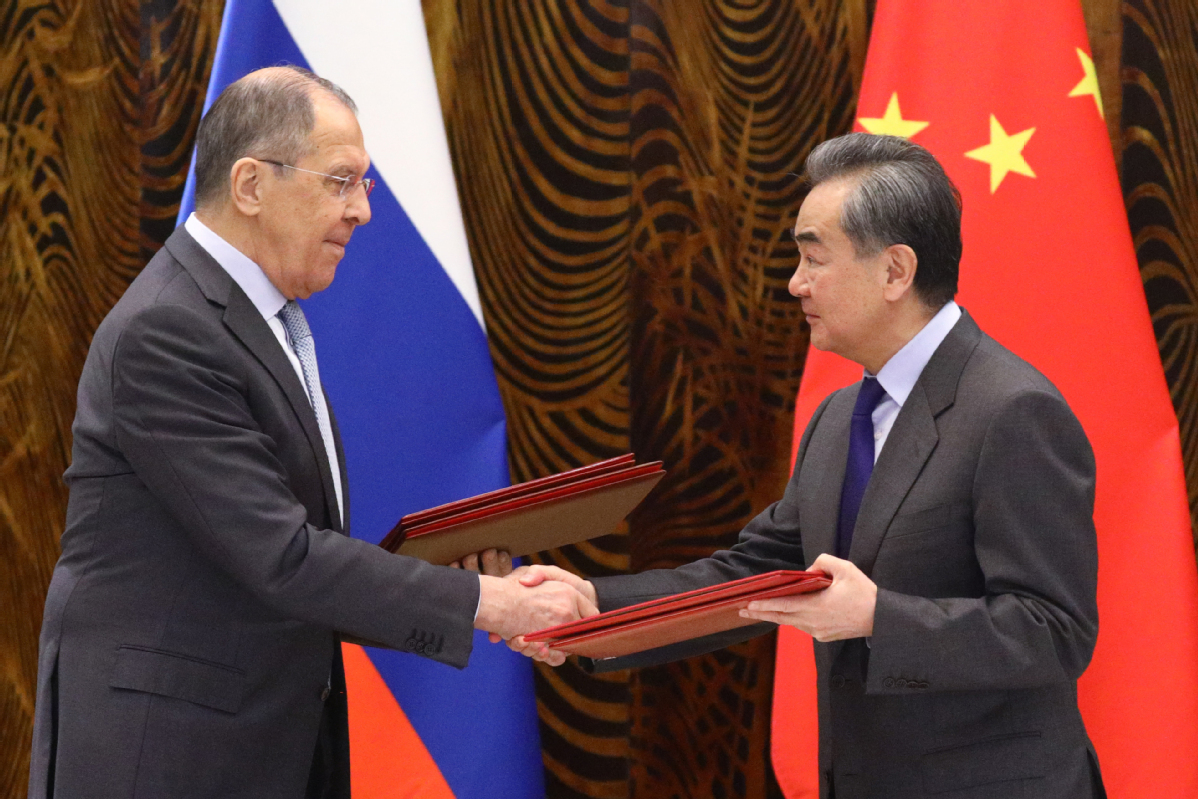Chinese, Russian FMs urge dialogue, not confrontation


The foreign ministers of China and Russia jointly lashed out on Tuesday at some Western countries' interference in other nations' domestic affairs and their imposition of double standards, and they urged dialogue rather than confrontation in handling global affairs.
Following their two-day talks in Guilin, Guangxi Zhuang autonomous region, State Councilor and Foreign Minister Wang Yi and Russian Foreign Minister Sergey Lavrov issued a joint statement on global governance.
The statement elaborated on the official understanding of key concepts such as human rights, democracy, international order and multilateralism.
This "displays the firm will of Beijing and Moscow to jointly safeguard international fairness and justice", Foreign Ministry spokeswoman Hua Chunying commented.
In the statement, China and Russia voiced objections to moves that politicize human rights issues and use these issues as an excuse to interfere in other countries' domestic affairs based on double standards.
Both countries agreed that there are no unified standards for the patterns of democracy, and it is unacceptable to interfere in sovereign nations' internal affairs in the name of "advancing democracy".
Wang said that at the ongoing gathering of the United Nations Human Rights Council, more than 80 countries stated their support for China's position regarding the Xinjiang Uygur autonomous region.
The expansive support is adequate to prove that "justice will always prevail" in the world, and "the times have changed" for those nations that attempt to arbitrarily intervene in China's domestic affairs by fabricating a story or telling a lie, Wang said.
On the definition of "international order", Wang criticized the ambiguity of the concept of the "rule-based international order", which refers only to the rules set by a fraction of countries that do not represent the will of the international community.


















